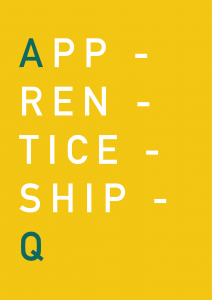Merlin Entertainments – Employer leading on developing industry wide standards and relevant training and education in the specialist entertainments sector

By Nick Davy, Arti Saraswat (AOC)
Insert Excerpt
The focus of this department in the company is the maintenance of equipment and machinery related to the entertainment and leisure industry such as fun fair rides, props such as make-up/wax figures and other working parts associated with this industry. The company manages large fun fair parks and entertainment venues such as the London Dungeon and Madame Tussauds.
The company has a very strong training and development culture.
The company has produced an in-house quality handbook for WBL/Apprenticeships indicating development at 5 levels, broadly equivalent to England’s QCF.
It has also led a national employers group developing National Standards for Leisure and Entertainment Industry Technicians and Engineers – available for all employers in England in that industry.
The company partner’s with IMD Business School in Switzerland and Kingston University for its management and leadership programme and Havering College for its apprenticeship provision.
Trainees/apprentices initially assessed, and then assessed against the relevant skills, knowledge and behaviours in the nationally approved apprenticeship standards document.
Each apprenticeship receives a contract at the beginning of the apprenticeship. In this case, it is a statement of commitment. This includes objectives, training plan, if relevant – qualification aim, development of competencies – skills, knowledge, behaviours’ – identified in the national standards document, mentoring and feedback processes and assessment regime. The apprenticeship is managed externally by Activate and off-the-job-training provided by Havering College.
There are transparent management and accountability structures in place to record the progress of the apprentice, including formal liaison between company, managing agent and OFJ trainer.
The company has a clear learning, development (LD) supervisory, and management structure dependent on size of operating location. Large locations will have a Learning and Development Manager; smaller ones organized into a cluster with a named person responsible for LD at the location. Final responsibility rests with a LD Director across all locations. Managers supported to gain relevant external qualifications such as a level 5 Operations Department Manager.
All trainees and apprentices provided with regular informal feedback as part of the mentoring process. There are also opportunities to provide formal feedback after assessments and at the end of formal on-the-job and off-the-job training events. The company has access to the off-the-job training feedback responses.
Apprenticeship programme has allowed new talent to enter company and become committed to its culture and ‘way of working’.
No constraints identified.
None identified.
The emphasis on two-way ‘quality relationships’ is an outcome of a previously unsuccessful relationship.



